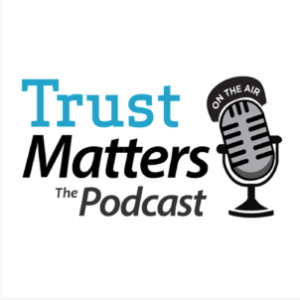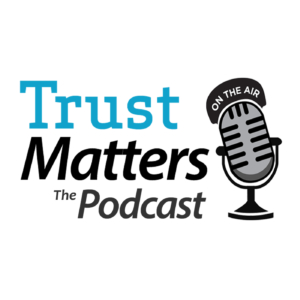Ken Roller is an experienced B2B salesperson; he spent the past 35 years in Corporate America working for 2 industry leaders (including 21 years at Intel), serving Global 1000 customers.
Ken’s classic sales credentials are impeccable: he exceeded his quarterly sales quota for over 20 years straight – 83 quarters in a row – in a time and in industries that faced brutal competition and roller-coaster global economic conditions.
I came to know Ken during his tenure at Intel; he was extremely helpful to me at a time I was writing Trust-based Selling. We’ve stayed in touch; I asked Ken to share with us some hard-earned wisdom from his career.
——————————
Charlie: Ken, it’s great to have you ‘here’ on Trust Matters. I’ve always thought you embodied many of the things I write about.
Ken: Thank you. I’ve always thought that we’re kindred spirits in our concepts and feelings on how we work and relate to customers and people. One of the inflection points in my professional career was when I read “The Trusted Advisor.” It succinctly captured the essence of selling with integrity, something that is paramount to my being and who I am.
Charlie: Well then, you’re a great person of whom to ask this question: How do you establish trust with “C” level execs at some of the biggest companies in the world?
Ken: First, I’ve always taken seriously my counsel with my customers and would never jeopardize their livelihood, career and their family’s future with my guidance. That’s not pablum, that’s truth; it is the root of my answer to your question.
It’s easy to tell somebody about your experience and the benefits of your products and services. It’s harder to demonstrate that you “truly care.” That has always been a differentiator for me. You quote the late great George Burns as saying, “you can’t fake sincerity.” He’s right, and the continued attempt to do so is why there’s a pervasive view of salespeople being the proverbial “used car salesperson,” with their only concern being themselves and their company.
Charlie: Now, let me just get this straight. I ask you about selling to the C-suite, and your answer is “you have to care?” I don’t think that’s the typical canned response from most sales ‘experts,’ is it? Maybe you can give an example of how you showed a customer “you cared” in this manner?
Ken: Sure. I was blessed that the companies I worked for had world-class products. Even so, the reality is that not all products are always great – or even good.
I was working closely with the CTO and his staff at one of the largest Financial Services companies in the world. Our competitor’s product was 78% faster than our comparable product out of the box! That was the context in which I put together a several day meeting at our facility in Ireland, and had this company’s entire senior staff fly in from Europe and the US for a strategic update.
During the meeting, I asked them if our technical team could work with them to ensure that they implemented our solution properly so we could have a fair bake-off – and, I told them, if our competitor were to beat us, they should purchase their product and shame on us.
When I said that, you could hear an audible gasp come from my company’s execs. They had a look on their face of “Did Ken really just say what I think he said”?
The thought that my career was over suddenly crossed my mind.
However, my customer’s CTO noticed the ruckus I caused and immediately stood up. He said, “Thanks, Ken, for putting together this wonderful 3-day gathering; you’re a breath of fresh air in an industry that is polluted with unscrupulous salespeople.”
“You educated us to the fact that your next generation product, coming out in a few quarters, will have a new micro-architecture that will enable you to leap-frog the performance of your competitors. We believe you, and trust you, and are looking forward to testing your new platform ASAP. We want to work with you Ken.”
He basically told my executive management that my candor and “caring” should be applauded; and if anything were to happen to me, my company would lose their future business.
And…our next generation product did perform as promised, and has been the industry leader ever since.
Charlie: What I called the Acid Test of trust is whether you’re willing to recommend a competitor to a client. In effect, that’s what you did here.
Ken: It’s not that hard if you have a long-term perspective. If you want to build a long-term strategic relationship, and have faith that the next iteration of your product will fix your issues, you’d do what I did. If not, you might sell them your current product, but your reputation will be ruined forever.
Be honest and live to sell another day!
Charlie: Switching gears: I think when a lot of people find themselves in the C-suite, they get tongue-tied. Their pulse rate goes up, they get flustered, and they end up making any number of rookie mistakes. Advice?
Ken: Senior executives have no time for those who are in “awe” of whom they’re meeting.
Confidence – especially, confidence in yourself – is critical. You don’t have to be an expert in everything – but you’d better be expert in something, very clear about the boundary lines – and just as forthright about what you don’t know. Be prepared, and do your homework: then tell the truth. Honesty trumps ignorance.
You have to have great respect for them – but also remember they’re your equal! Deal with your insecurities and don’t psyche yourself out.
Talk about what’s important to the executive. Being STRATEGIC and not tactical is critical. Don’t discuss problems, just solutions. The higher up you go, the more you’ll find people who are surgically focused on growing revenue, innovation, and garnering a competitive advantage.
Charlie: Any additional tips?
Ken: Creating long-term relationships with senior executives is like shooting a good game of pool – you’re always shooting for the next shot!
As we discussed earlier, listen more than you talk, but be prepared based on your research to share some 30-second “nuggets” that will be of interest to them that also demonstrates your reputation as a known expert in your specialty.
Ultimately, if you want a trusted advisor relationship with executives, you have to make sure they see you as a “Player” that a) constantly educates them to things that they and their staff don’t know, and b) does so respectfully but in an insightful, direct manner that clearly shows you have the customer’s interest at heart.
Charlie: In your experience, what’s the single biggest obstacle to a salesperson building trust with their customers?
Ken: That’s an easy one! Sorry for my politically incorrect answer, but it’s imperative that salespeople learn to STFU and LISTEN!
So many salespeople are myopic – enamored with themselves and their voice when the conversation is not about them; it should be about their customers and helping them solve their business / OPEX problems and issues.
That’s why I feel the “Trust Equation” is the single most important sales theory ever created. With Self-Orientation in the denominator, the more you talk about yourself, the less trust you build! So in the words of the Kevin Spacey character from “Swimming with Sharks”, Shut-up, Listen and Learn!
Charlie: Thanks Ken for sharing with us your thoughts and ideas.
Ken: Thank you, as always, it’s been a pleasure!




 Bob Dylan long ago surpassed his namesake Dylan Thomas in fame. His lyrics grace the lists of most popular lyrics of all time; my favorite is “
Bob Dylan long ago surpassed his namesake Dylan Thomas in fame. His lyrics grace the lists of most popular lyrics of all time; my favorite is “